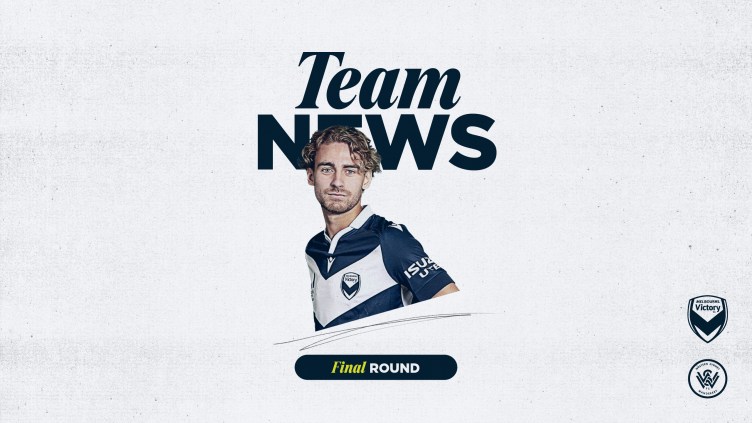In the second of a series where he talks about Melbourne Victory’s championship-winning season, the Melbourne coach Ernie Merrick tells Sportal’s Bren O’Brien about the importance of processes and goal-setting in achieving positive outcomes.
In the second of a series where he talks about Melbourne Victory’s championship-winning season, the Melbourne coach Ernie Merrick tells Sportal’s Bren O’Brien about the importance of processes and goal-setting in achieving positive outcomes.
In the lead-up to the Grand Final success over Adelaide, Ernie Merrick said that Melbourne needed to stick with its usual process and the outcome, that being Championship success, would take care of itself.
It seemed a particularly detached and unemotional approach to the hype of grand final week. The cliche of ‘processes and outcomes’ is enough to send most sports fans to sleep. For the average fan, who hangs on the result of every game, the concept of a match being decided by who follows their processes better is enough to drain the passion from the game.
But in the high-pressure world of professional sport, the strength of the process and the ability of players to adhere to that in achieving their goals is one of the most important tenents of sports psychology. Coaches may be ultimately sacked based on outcomes, but they are hired on their processes.
Merrick, now a two-time Championship-winning coach, said goal-setting is a vital aspect to getting the most out of his players, both individually and as a team. He said the players needed to learn to set obtainable aims, and not get too caught up with the outcomes.
“If you look at goal-setting. You can only set goals if there’s something you can personally achieve. Some things are out of your control,” he said.
“Let’s say Danny Allsopp sets himself a target of scoring five goals in the Pre-Season Cup. He might have done everything right but the goalkeepers may have been outstanding, so he can’t control scoring a goal. What he can control, he can get into goal-scoring areas every time the ball’s in the box. He can get his shots on target, so he’s forcing the goalkeeper to make a save,” he said.
“His objectives are all about the runs he makes, the areas he gets into, the timing of his runs. If he can’t score a goal can he play-in someone else? In any goal-setting, the objectives should always be processes the players can control and affect.”
Merrick, somewhat of a master of separating the emotional from the rational, admits that it can be hard to shape players’ mentalities to set goals which are not only obtainable, but are also within their control. He used the example of the Pre-Season Cup, a title Melbourne won this season, but for the coaching staff was chiefly about the process.
“The pre-season was tough, the boys were determined to win it. But when they set their goals and objectives, we try to keep them very process focussed. These are the things that we need to control, that we need to be able to perform efficiently in attack and in defence. That’s how we set our objectives, but sometimes the players resort back to outcomes. And they said ‘we want to win the Pre-Season Cup,” Merrick said.
While Merrick is well-practiced in the art of separating heart from head, he understands that players sometimes need the lure of an overall goal as motivation.
“Then they said we want to get in the finals, the top four, then we want to get in the top two, then we want to win. As much as I tried to keep them processed focussed, they are also very outcome oriented.”
When he looks at setting benchmarks for his team, he knows that he has to focus on the smaller details working to form a bigger picture. If his players are able to achieve those smaller goals, then the right outcome should follow.
“The coaching staff work continually on play patterns – defensively and offensively, individual to group to team, or micro to macro. Positive outcomes will follow. We never set the team a final points tally like 37 points. No person can control the number of points we will achieve. It’s about what you can work on physically, technically and strategically to combine as a unit to play creatively in attack and conversely force the opposition to play predictably when we are defending . That’s our standard practice, and it’s standard in practice, goals set in achievable processes. The outcomes follow if you’ve got 11 players achieving all their challenges.”
The understanding of the smaller details can also work well in assessing performances in hindsight, even in areas like discipline. Merrick uses the example of the club’s much-publicised ‘discipline troubles’ earlier this season where Melbourne had four players sent off in the space of five matches. Merrick said that while the red cards were not ideal, the overall discipline of the team outside those key incidents remained strong.
“Melbourne Victory in a match this season received a red card and two yellow cards, while the opposition received only one yellow card. Who is the more disciplined team? However, if the opposition committed three times as many fouls in the match, who is more disciplined? At the end of the year Victory is on the low-end of the scale regarding yellow cards and fouls committed.”
“At no stage that I feel that were any more or less disciplined than the average team. In effect if I look over the course of the season, I would say we were among the most disciplined. But the red cards don’t show that.”
Merrick said it was also important to have consequences for players who are not disciplined. He said every one of the Melbourne players who were sent off in those games were made accountable for their actions.
“All of those players have spoken to the group and explained what they did and why it was out of order. To me accountability is vital and this promotes mental toughness, as well as discipline. All team members must be responsible to the group (players and staff). Ultimately, discipline is my responsibility.”
Perhaps the most satisfying aspect of this approach is seeing it come to fruition on the field. Merrick is no believer in histrionics on the bench and says the influence a coach can have on a game when it is in play is limited. That’s why he was so pleased when his players, faced with a 2-0 deficit against Sydney just after Christmas, stuck to their guns and produced a stirring comeback which set the scene for a dominant finish to the season.
“There’s too much made of coaching influence during the game, at half-time, or on the sideline. The more you have to stand up and have a go and change things, the more problems you get. The work is done during the week, and it’s cumulative from the first day of pre-season,’ he said.
“Against Sydney we were down 2-0 within three minutes. Both goals were fantastic strikes in the top corner. The worst thing I could have done is change the game plan and the team structure. We persisted in playing our formation and our brand of football. We gradually played our way into the match ultimately winning 3-2.”
So when Melbourne cruised into the grand final off the back of a 6-0 aggregate semi-final win against Adelaide and faced the same opponent in the season-decider, Merrick had faith his processes would work no matter what the status of the game.
In a tight and tense contest, Melbourne persisted with its plan and prevailed 1-0 to take the Championship. Merrick’s post-match praise was not for the master strike from Tom Pondeljak which yielded the only goal of the game, but for the way his team backed their processes to get the job done.



